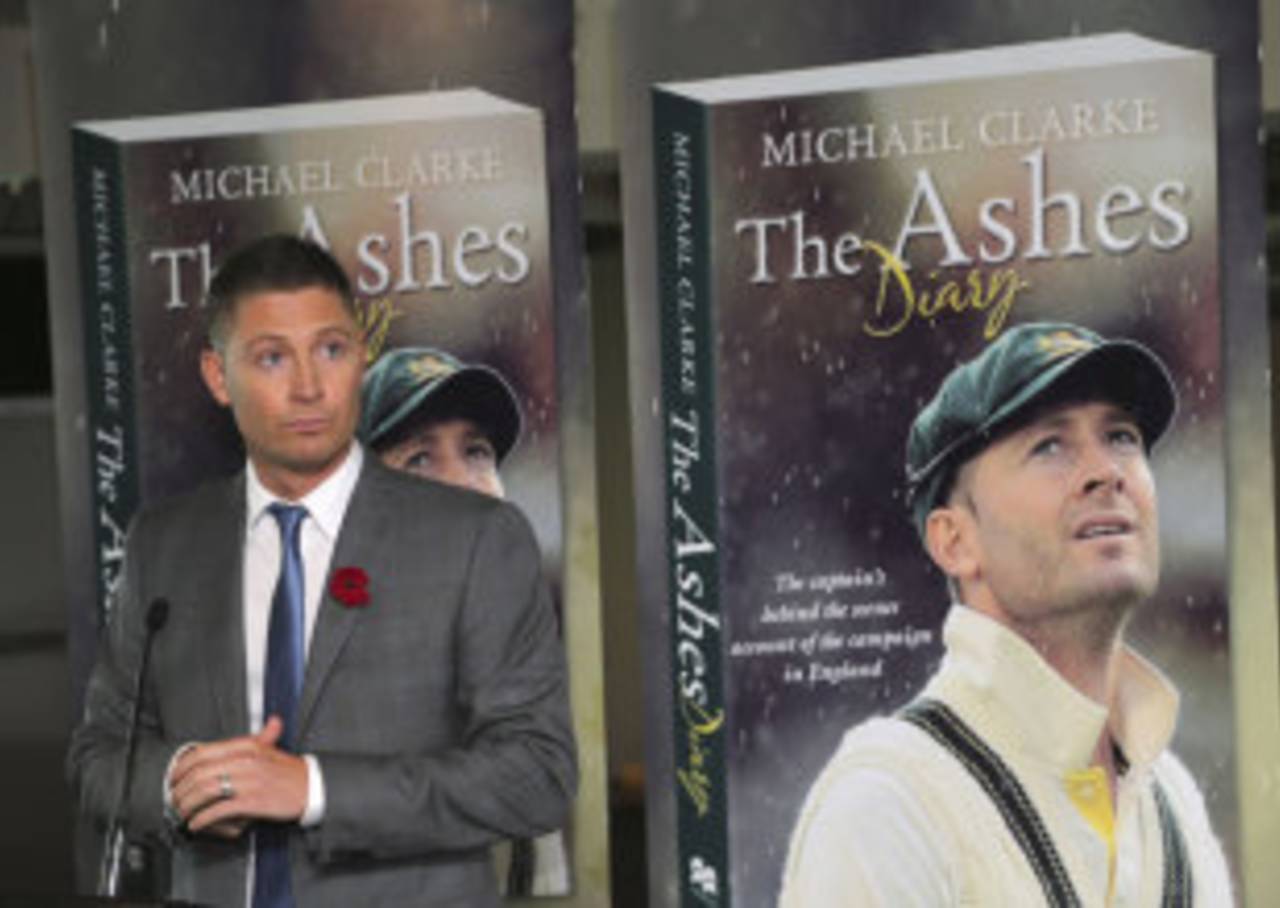Australia's captain
Michael Clarke has questioned the wisdom of the referral system for disputed verdicts, stating that its use is distorting the actions of the umpires as well as the players, and admitting he would prefer the DRS to be thrown out entirely if its consistency does not improve.
Clarke has also declared he does not wish to see Hot Spot return to the array of technological tools for third umpires until its reliability can be improved beyond the level seen during the previous Ashes series.
Tackling the issues surrounding the DRS in The Ashes Diary, his account of the Test matches in England, Clarke said that the introduction of referrals had created an unsavoury tactical and mental battle in addition to those traditionally fought between bat and ball - as glimpsed by Stuart Broad's infamous reprieve at Trent Bridge.
"The referral system - where captains have two unsuccessful referrals at their disposal - can distort the process," Clarke wrote. "I don't like the tactics involved, where umpires and the teams know how many referrals are left, and change their decisions accordingly. It should be consistent for all players."
Clarke chose as his example the most controversial moment of the Ashes series when Stuart Broad edged Ashton Agar to slip, via the gloves of wicketkeeper Brad Haddin, but chose not to walk and the DRS regulations allowed him to remain at the crease even though the nick was abundantly clear to everybody but the standing umpire Aleem Dar.
"The ultimate problem with the Broad 'dismissal' in Nottingham wasn't that he didn't walk, or that the umpire had made an error - it was that the complicated DRS rules meant the third umpire didn't have the opportunity to overrule the on-field decision."
The wider principle Clarke has argued for is that if technology could prove that a batsman was out, then he should be made to go, irrespective of the initial decision or the number of referrals available to the fielding team. "I believe that if it's clearly shown that the batsman hit the ball and he was caught, then the technology should be used to ensure he is out," he wrote. "If he's hit in front of the wickets and the technology shows he is lbw, he should be out, regardless of how many referrals remain.
"As a captain, I'd just like the technology to be used to make more correct decisions, without all the complications of how many referrals remain or don't remain. There shouldn't be a numerical limit. If this means passing referrals back into the hands of the three umpires, on and off the field, then so be it. My final word on the matter - if technology, and the use of technology by the umpires, continues to be as inconsistent as it has been in this series [in England], I would rather it is not used at all."
Hot Spot appears to have been shelved for the forthcoming series, and Clarke said he would not appreciate its return until the technology improved in its ability to deliver consistent results. "My opinion is that if the technology isn't perfect, it shouldn't be used at all," he wrote. "The inventor and owner of Hot Spot [Warren Brennan] came out and admitted it doesn't pick up all nicks. Ok, that's fine: Hot Spot should not be used until it is more reliable.
"Once the technology has been tested and is shown to be correct, then the ICC should rule that every team has to use it. We should have the same rule for everyone."
Since Clarke's thoughts were penned, the ICC has
introduced a "top-up" of a maximum of two additional reviews for each side after 80 overs.
Daniel Brettig is an assistant editor at ESPNcricinfo. He tweets here
